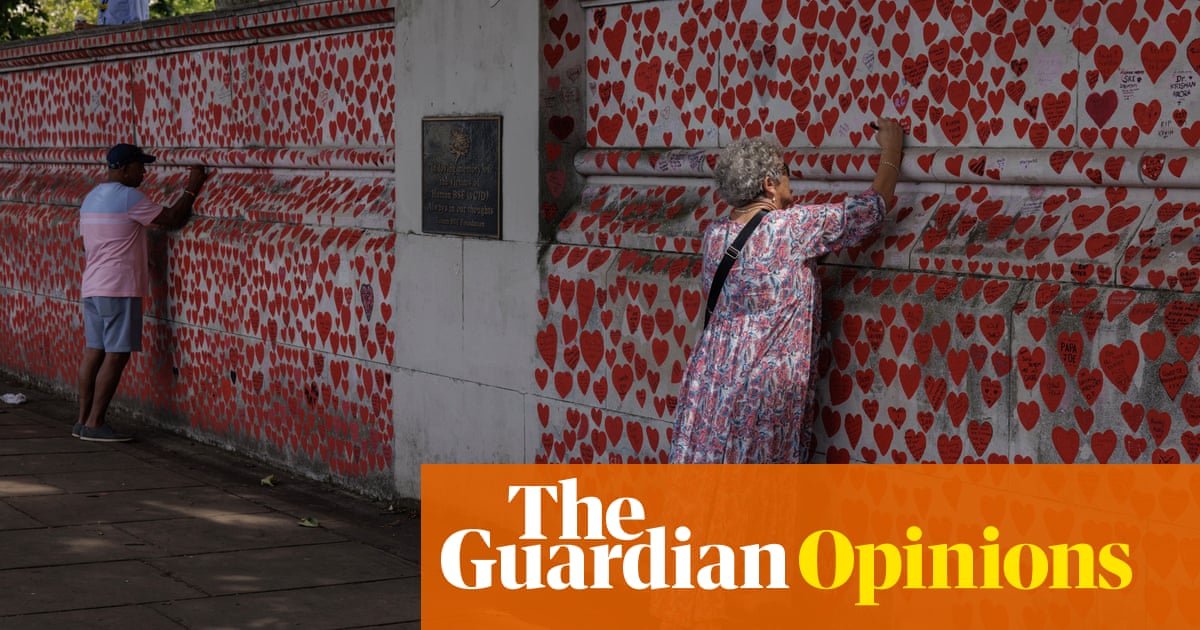It’s hard to know where to start if you are a brand new government taking on a mega-survey of risk and potential emergencies in the UK. Beyond the Covid-19 pandemic, the challenges are many. I am an adviser in UK emergency planning and have worked on almost every disaster involving British citizens since 2001, including the 9/11 terrorist attacks, the 7 July 2005 London bombings and the Grenfell Tower fire. My inbox is full with questions of how to prepare for prison overspill, plans to prevent any future terrorist attacks, details of the devastating aftermath of constant flooding and updates on several global conflicts. And, of course, there is always the next pandemic to ready ourselves for.
Most inquiry reports that land on our desk suffer from inaccuracies and underresearch. But I was relieved when the Covid inquiry’s findings were released last Thursday. Heather Hallett proved that she gets emergency planning and some of the central tensions within it. She has urged for it be taken seriously at cabinet level – her first recommendation is the need for a ministerial committee for whole-system emergency preparedness chaired by the prime minister. Lady Hallett also recommended a streamlined bureaucracy with fewer jargonistic terms used and a simpler chain of command. She said that an effective response would come best from a disaster agency independent of government. And that a pandemic was no “black swan event”. Ministers need to be comfortable accepting that the reasonable worst-case scenario could happen rather than writing it off as unlikely or as a cynical ploy for more resources.
Over two decades, I have learned that new cabinets are particularly prone to dismissing the disaster planning of previous administrations. Some might argue the case to do this will be strengthened by the first recommendations of the Covid inquiry, which identify fatal flaws in the paths taken. But I would strongly advise resisting this tendency.
The wider picture is not a pretty one. Emergencies are about people and communities, and right now most people are exhausted and afraid. Trust in governmental response has been lost – and ministers must address this dynamic quickly. The answer? Think local. You will never be able to dissuade me that the best way to manage the country’s risks is at that most local level, albeit with all the national support and resources they can wish for. Cabinet members must frame on their Westminster wall the pages of the inquiry that talk about how much worse the pandemic would have been without local initiative. Treasure that resource and pledge to protect it whenever you can.
On this basis, I would advise giving more power to local responders and advocate for the continuation of the work strengthening local resilience forums (LRFs) – bodies where emergency planning is coordinated made up of local authorities, police, ambulance, fire and other key agencies. Prior to Covid, these bodies dealt with health emergencies in a rather clunky way, but disasters are unsurprisingly periods of innovation, and their function was much improved as a result of the pandemic. Hallett’s recommendations on simplifying labyrinthine structures would improve them further.
It is also vital that the government broadens its expert advice. The current approach to scientific advice is plagued by credentialism, back-scratching and patronage. For years, if you said something an adviser did not like, you were quietly dropped from the advisory invitee list. But occasionally I found that ministers rather liked a bit of brutal honesty. It may come as a shock to find out the last government eventually became rather good at “red teaming” (seeking out alternative and wildcard views to test their own defences), as they realised that advice they were relying on was inadequate. Formalising that process to avoid groupthink or bias, as Hallett recommends, would be a smart move.
Hallett’s last recommendation is for the creation of a “single, independent statutory body responsible for whole system preparedness and response”. My master’s dissertation was a passionate call for an independent disaster agency after seeing the bodies of British soldiers – who were without adequate PPE – arriving back from Iraq having died of heatstroke. I thought a lot about PPE in that awful spring of 2020. I have my concerns about whether true independence is possible, but an agency would allow for a consistency of purpose in emergency planning and become a hub for flagging inequalities in the system that need to be addressed. After all, disasters rarely create new cracks – rather, they exacerbate existing ones.
While in opposition in the pandemic, Labour showed worrying gaps in its knowledge about our disaster legislation that they themselves passed in 2004. To overcome this, the party must not delay civil contingencies training for its own cabinet like the last government did. There is risk to be encountered in every minister’s portfolio, so every cabinet member must foster a curious, “book club” culture where they expect and demand argument and counterargument from multiple publications and sources on a daily basis. No difficult truth should be off limits. Ignore that advice and the harm to society may again be catastrophic.
-
Lucy Easthope is an adviser on disaster response and recovery, and author of The Recovery Myth, When the Dust Settles and co-editor of When This Is Over: Reflections on an Unequal Pandemic
